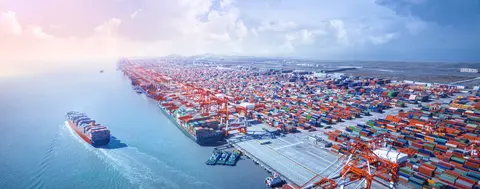Trans-Atlantic_Trade_and_Investment_Partnership_TTIP
The Trans-Atlantic Trade and Investment Partnership (TTIP)
The Trans-Atlantic Trade and Investment Partnership (TTIP) is a bi-lateral agreement between the USA and EU. Talks between the US and EU began in July 2013, and the 14th round of talks will take place in Brussels in July 2016 (between 11th and 15th July, 2016).
Along with the Trans-Pacific Partnership (TPP), TTIP forms a key part of recent US economic policy towards the global economy. Since 2010, and in the wake of the financial crisis, the US has sought to rebalance its economy towards exports and away from an excessive reliance on domestic consumption and the US housing market.
The Aims of TTIP
A central aim of TTIP is to create a level playing field for US and EU producers. Although tariffs between the EU and US have generally been low, with around half of trade free of all tariffs, some goods are still heavily protected, including shoes, clothing and many agricultural products. The removal or reduction of tariffs is central to the process of trade liberalisation between the US and EU.
Areas covered
TTIP negotiations cover three main areas:
Rules governing trade – including negotiations on tariff free access to natural resources and renewable energy, access to infrastructure, setting common rules on workers’ rights and on the environment, and ensuring that small and medium sized firms can benefit from access to markets.
Market access – specifically, TTIP seeks to open up access to markets for manufactured goods, agricultural products, services and public contracts.
Access to public contracts
Perhaps one of the most significant and potentially controversial aspects of TTIP negotiations is the granting of access to public sector contracts in one territory by private firms operating in another – access which has largely been denied up until TTIP.
The US and EU have the largest public contracts markets in the world, and, consequently, opening up domestic public sector contracts is seen as a way of achieving greater ‘value for money’. In theory, removing obstacles which restrict EU firms from bidding for public sector contracts in the US – and vice versa – should open up the market to greater competition, and all possible benefits this will bring. Under TTIP rules, US and EU firms will be able to bid for contracts to supply healthcare, education provision, and water supply in each other’s markets.
Potential gains include lower charges for services as well as an increase in their quality.
While membership of TTIP will open up domestic markets for healthcare, in terms of the NHS the UK’s vote to leave the EU does, of course, cast doubts over the eventual impact of TTIP on post-Brexit UK, and public sector service provision.
Co-operation between EU and US regulators – which involves harmonisation of existing regulations, the recognition of each other’s regulations, and negotiating new ones to create common standards. Regulatory ‘convergence’ is seen as a necessity in terms of further market liberalisation. The harmonisation of EU and US standards covers several areas:
- Food safety and environmental regulation, including developing a standardised approach to GM technology.
- Industries where standards are quite different, including chemicals, medical equipment and cosmetics.
Investor protection
In terms of investment, TTIP is attempting to level the playing field for EU and US investors. A central element of negotiations involves the attempt to adopt common investment rules and investor protection.
One area of initial concern is the right of firms to sue governments if, for example, their investment rules turn out to be discriminatory. For example, a US firm would have the right to seek compensation from, say, the French government if it banned its products, while at the same time not banning similar products made by French producers. As well as do harm to the US firm, investors in that firm would lose as the value of their investment would be drop as a result of the discriminatory activities of a European government.
Investor to State Dispute Settlements
Investor to State Dispute Settlements (ISDS), are a form of arbitration which have been used since the 1960s. Disputes may exist when investors in one country believe they have suffered discrimination by a government of another country. The need for this system arises because domestic law rarely takes into account the needs of international investors. Following ratification of TTIP, US firms will be able to use the existing disputes settlement system when dealing with the EU Commission (who represents EU national governments).
See also:
Trans-Pacific Partnership (TPP)



